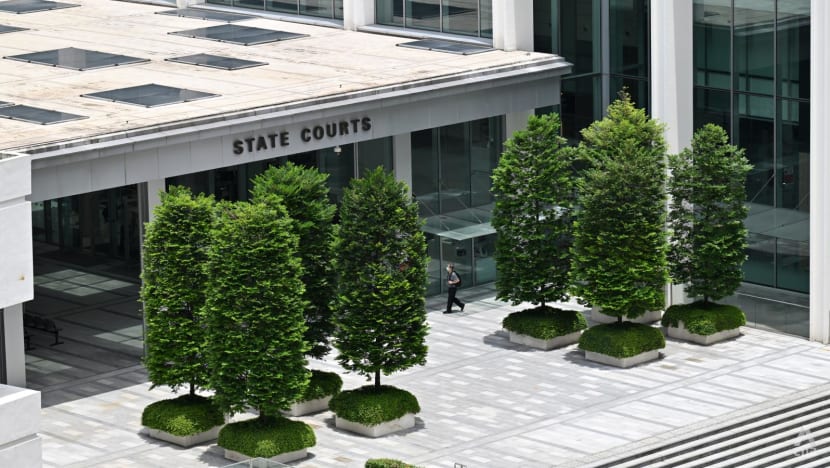- Joined
- Aug 20, 2022
- Messages
- 17,388
- Points
- 113
Mother and son charged with lying to IRAS over 99-to-1 property purchase in first such prosecution
Tan Kai Wen Keith, 26, had purchased a condominium unit at 49 Canberra Drive in his name before selling 1 per cent to his mother Ng Chiew Yen, in a move IRAS suspects was meant to avoid tax.
File photo of the State Courts of Singapore
SINGAPORE: A mother and her son were charged on Friday (Sep 20) with lying to the tax authority over a "99-to-1" property purchase arrangement.
Tan Kai Wen Keith, 26, had bought a condominium unit in his name before selling 1 per cent of it to his mother, 56-year-old Ng Chiew Yen.
The Inland Revenue Authority of Singapore (IRAS) suspects the transaction was arranged to avoid paying additional buyer's stamp duty (ABSD).
Charge sheets state that the property is located at 49 Canberra Drive - the address of an upcoming development The Watergardens at Canberra. Units there are priced at S$1.19 million to S$2.87 million, according to listings on PropertyGuru.
This is the first such prosecution involving taxpayers accused of giving false and misleading information to IRAS as part of its audit of two-step 99-to-1 property transactions.
Such transactions involve one person owning 99 per cent of a property while a second person holds 1 per cent.
Abusers of the scheme typically have one owner buy the property at 100 per cent before transferring 1 per cent to the co-owner, who presumably is liable for more taxes because they already have property under their name.
By structuring the transaction this way, ABSD is payable only on the 1 per cent share of the property, rather than the full value of the property if the purchase was done jointly at the outset.
THE CASE
The Singaporean pair charged on Friday received five charges each under the Stamp Duties Act for conspiring to provide misleading information to IRAS.Tan purchased the residential property in his name on Sep 24, 2021, and subsequently sold a 1 per cent share to his mother.
In 2023, IRAS began auditing the related transactions and sought information from Tan via email.
When asked why he did not jointly purchase the property with his mother at the outset, Tan allegedly said that he had made a hasty decision to buy the property, with the understanding that his family would support him financially.
He is also accused of lying that his family was unable to do so and that he had to add his mother as a joint owner to take a loan.
Tan is also accused of providing misleading information to IRAS in the form of incomplete WhatsApp messages.
Neither Tan nor his mother have indicated how they would plead. They will return to court in October.
If convicted of providing false and misleading information to IRAS, Tan and Ng could be jailed for up to two years, fined up to S$10,000, or both.
IRAS said it will recover the rightful amount of stamp duty from buyers if it discovers tax avoidance. A surcharge of 50 per cent of the additional duty payable can be imposed, and there is no statutory time limit for stamp duty audits.
Purchasers who entered into a two-step 99-to-1 property purchase arrangements should voluntarily disclose their arrangements to IRAS, the taxman said.
"Depending on the circumstances, IRAS is prepared to consider such cases more favourably," the agency added.
Finance Minister Lawrence Wong said in May that IRAS had found 166 cases involving tax avoidance in its review of 187 such 99-to-1 cases, adding that about S$60 million in ABSD and surcharges will be clawed back.
